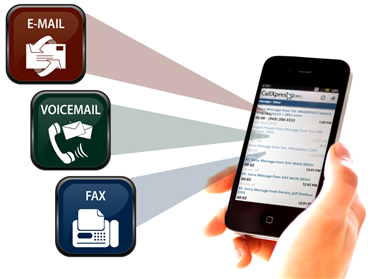Last updated on March 24, 2014
Whilst it might sound to a casual observer to another one of those ‘jargon’ words that people use in order to sound important, Installing a ‘unified communications’ system in your office will not only increase productivity through sheer convenience, but should actually make your job and the jobs of your employees significantly more easy. So if your business isn’t currently using one, why not? Well before we begin extolling their numerous virtues, it’s probably important that we establish exactly what unified communications actually is (besides a bit of a mouthful).
So What Is Unified Communications?
Most of us in this great modern age will use a variety of electronic tools in order to communicate. From smartphones and tablets to landlines, instant messaging, web conferencing and e-mail. In essence what unified communications achieves is to incorporate all of these disparate elements into one easy to use, stable system. A UC system is less of a tool and more of a system of tools, all working together in perfect harmony. Numerous technologies are taken advantage of to streamline messages from a variety of sources into one system, breaking down communication between you, your employees and your clients into a simpler, faster and easier process.
To give an example of how a UC system works, imagine you’re at work and you begin a phone call from your desk landline but then have to leave the office in order to travel to a meeting? With a UC system you’ll be able to pick up the call on your mobile phone or ask whomever your conversing with to leave yo a voicemail, which will get sent directly to the central system and will be waiting for you when you arrive back at your desk later. Conversely if a text message is sent from a client to your mobile but your mobile has either run out of juice or has been left at home, that same message will be sent directly to your desktop and to anyone else to whom the message is important.
What are the Benefits?
The benefits all generally revolve around the ease of real-time communication, completely circumventing the tedious, ‘back-and-forth’ nature of email and SMS messaging and collating everything into an instantaneous, ergonomic solution. The system should also be able to tell exactly when specific users are on or offline and when they are able or free to be reached , which will lead to an increase in efficiency and means that you will know the person you want to get the message has seen the message at their earliest possible convenience. You’ll also save a great deal on call costs as UC systems are based on a digital network, meaning all voice, text and video data is carried over a public network.
Collaboration between departments and between the employers and the employees is improved and there is even the option for remote access, meaning the system can be accessed and used outside of the office from another computer or smart device. Rest assured however that all of the information sent via a UC system will be encrypted so that it won’t be intercepted by the wrong person. A UC system would be particularly useful in a call centre, where hundreds of calls and messages are taken every hour and would result is far speedier and more substantial resolutions. The big term when it comes to anything UC related is ‘unification’. By unifying your telephony and internet based areas of your business, everything will run so much smoother that you might wonder how you ever managed without it.
Are There any Drawbacks?
Whilst a UC system might be an enticing solution for your businesses communicational needs, it more than will not be a perfect one. The system is clever but it’s far from fool-proof. For one thing the modern employee might already have access to a wealth of powerful technology, technology that may not be compatible with an outdated UC ecosystem. With technology moving so fast these days and getting cheaper and cheaper, this is far from beyond the realm of possibility. These technologies are also not monitored by the company like a UC system would be, meaning that the employees might feel a larger degree of freedom. Having all of their messages and conversations ‘tracked’ by a UC system on the other hand might make them feel as though they are not trusted, and any good business is built on a foundation of trust.
So is a Unified Communications System Right for my Business?
It all depends on the nature of your business and the nature of your staff. It’s a decision that could alter the way your business operates for the better but it could also alienate some of the more technologically savvy members of your team. It’s up to you whether or not the potential risks of a unified communications system are worth the potential rewards.















Be First to Comment